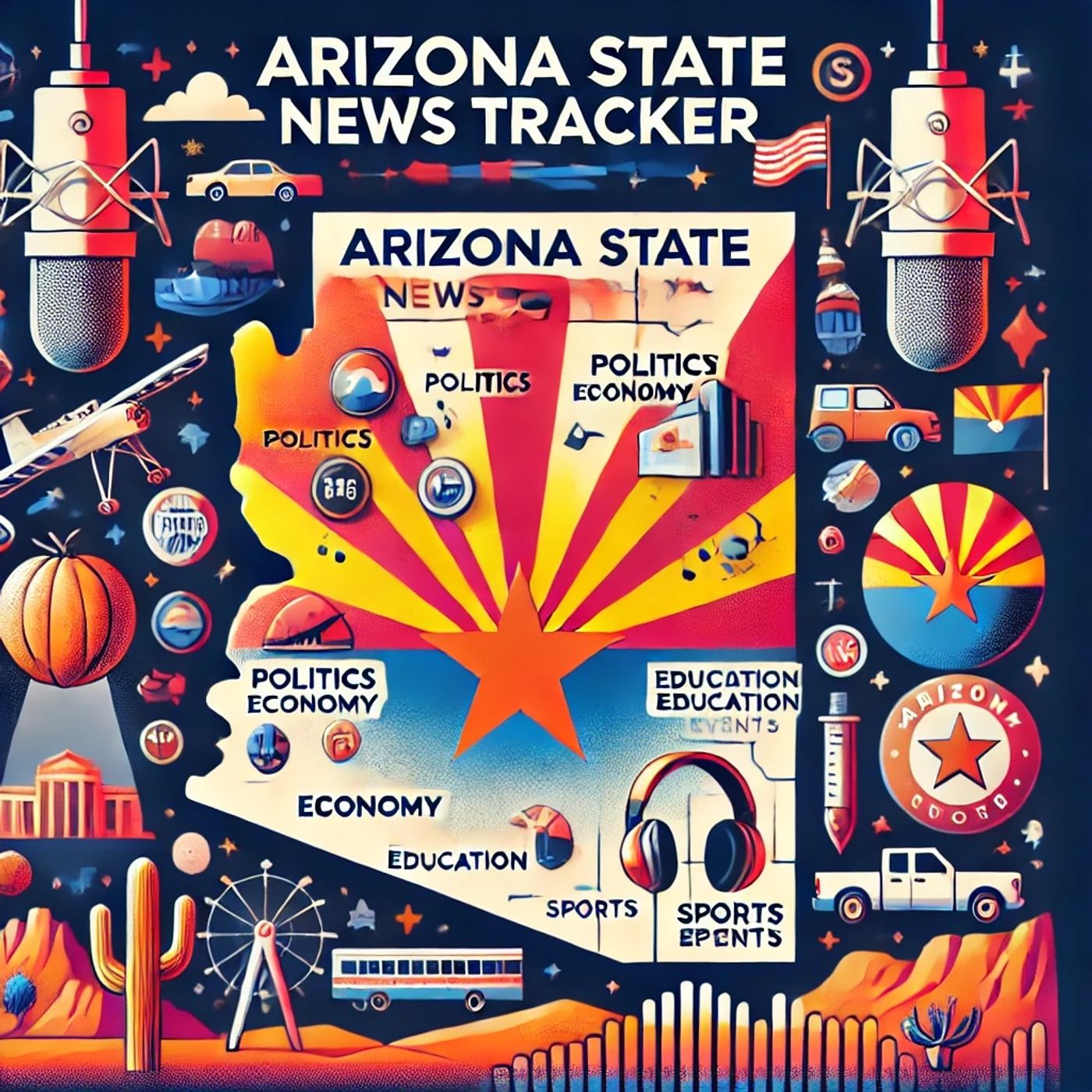Arizona State News and Info Daily
Arizona Hits Economic Milestone with $50 Billion Investment and Challenges Immigration and Air Quality Policies in 2024

Arizona's recent developments have been marked by significant legislative, economic, and environmental updates. The state legislature adjourned on June 15, 2024, with notable policy changes including the passage of HCR 2060 (now Prop. 314), an anti-immigrant ballot referral that would apply new state penalties to violations of federal immigration law, and the signing of HB 2310 and HB 1359 by Governor Hobbs[1].
On the economic front, Arizona set records for economic development in Fiscal Year 2024, attracting over $50 billion in capital investment and creating 24,251 new jobs with an average wage of $75,701[2]. This growth underscores the state's continued economic momentum.
However, environmental concerns persist. The American Lung Association's 2024 State of the Air report highlighted ongoing air quality challenges, particularly with ozone and fine particulate matter. The Phoenix metropolitan area ranks 5th in the nation for unhealthy ozone days, emphasizing the need for continued efforts to improve air quality[3].
In other news, Arizona's minimum wage increased to $14.35 per hour on January 1, 2024, reflecting a 3.7% increase in inflation[5]. This change aims to keep pace with rising living costs.
Looking Ahead:
- The upcoming election will see voters decide on Prop. 314, which has significant implications for immigration policies in Arizona.
- Continued efforts to address air quality issues are expected, with a focus on reducing ozone and particulate matter pollution.
- The state's economic development initiatives are likely to remain a priority, aiming to sustain and build on the recent growth.
- Ongoing discussions on policy changes and legislative updates will continue to shape Arizona's political landscape.
On the economic front, Arizona set records for economic development in Fiscal Year 2024, attracting over $50 billion in capital investment and creating 24,251 new jobs with an average wage of $75,701[2]. This growth underscores the state's continued economic momentum.
However, environmental concerns persist. The American Lung Association's 2024 State of the Air report highlighted ongoing air quality challenges, particularly with ozone and fine particulate matter. The Phoenix metropolitan area ranks 5th in the nation for unhealthy ozone days, emphasizing the need for continued efforts to improve air quality[3].
In other news, Arizona's minimum wage increased to $14.35 per hour on January 1, 2024, reflecting a 3.7% increase in inflation[5]. This change aims to keep pace with rising living costs.
Looking Ahead:
- The upcoming election will see voters decide on Prop. 314, which has significant implications for immigration policies in Arizona.
- Continued efforts to address air quality issues are expected, with a focus on reducing ozone and particulate matter pollution.
- The state's economic development initiatives are likely to remain a priority, aiming to sustain and build on the recent growth.
- Ongoing discussions on policy changes and legislative updates will continue to shape Arizona's political landscape.
- Broadcast on:
- 10 Dec 2024
Arizona's recent developments have been marked by significant legislative, economic, and environmental updates. The state legislature adjourned on June 15, 2024, with notable policy changes including the passage of HCR 2060 (now Prop. 314), an anti-immigrant ballot referral that would apply new state penalties to violations of federal immigration law, and the signing of HB 2310 and HB 1359 by Governor Hobbs[1].
On the economic front, Arizona set records for economic development in Fiscal Year 2024, attracting over $50 billion in capital investment and creating 24,251 new jobs with an average wage of $75,701[2]. This growth underscores the state's continued economic momentum.
However, environmental concerns persist. The American Lung Association's 2024 State of the Air report highlighted ongoing air quality challenges, particularly with ozone and fine particulate matter. The Phoenix metropolitan area ranks 5th in the nation for unhealthy ozone days, emphasizing the need for continued efforts to improve air quality[3].
In other news, Arizona's minimum wage increased to $14.35 per hour on January 1, 2024, reflecting a 3.7% increase in inflation[5]. This change aims to keep pace with rising living costs.
Looking Ahead:
- The upcoming election will see voters decide on Prop. 314, which has significant implications for immigration policies in Arizona.
- Continued efforts to address air quality issues are expected, with a focus on reducing ozone and particulate matter pollution.
- The state's economic development initiatives are likely to remain a priority, aiming to sustain and build on the recent growth.
- Ongoing discussions on policy changes and legislative updates will continue to shape Arizona's political landscape.
On the economic front, Arizona set records for economic development in Fiscal Year 2024, attracting over $50 billion in capital investment and creating 24,251 new jobs with an average wage of $75,701[2]. This growth underscores the state's continued economic momentum.
However, environmental concerns persist. The American Lung Association's 2024 State of the Air report highlighted ongoing air quality challenges, particularly with ozone and fine particulate matter. The Phoenix metropolitan area ranks 5th in the nation for unhealthy ozone days, emphasizing the need for continued efforts to improve air quality[3].
In other news, Arizona's minimum wage increased to $14.35 per hour on January 1, 2024, reflecting a 3.7% increase in inflation[5]. This change aims to keep pace with rising living costs.
Looking Ahead:
- The upcoming election will see voters decide on Prop. 314, which has significant implications for immigration policies in Arizona.
- Continued efforts to address air quality issues are expected, with a focus on reducing ozone and particulate matter pollution.
- The state's economic development initiatives are likely to remain a priority, aiming to sustain and build on the recent growth.
- Ongoing discussions on policy changes and legislative updates will continue to shape Arizona's political landscape.